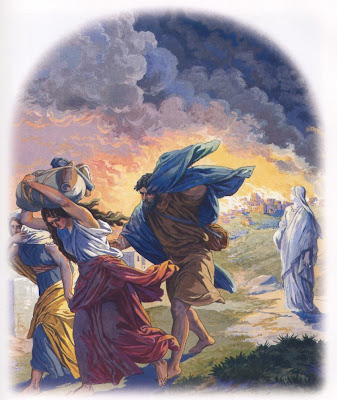
Jonah 3-4
When presented with the stark reality of Jonah's attitude it is difficult to empathise with him. He gets cross because he has to go and tell people to repent or they will be destroyed. Then he gets cross when they do repent and they are not destroyed. His anger is in the fact that God is gracious anyway so why did he have to bother going. (Of course he seems to forget that a whole city did actually change their hearts in the story!!). It is like Jonah is peeved at having to be involved at all! Why should he have to be - can't God sort it out on his own?
Then he gets cross about he bush and the worm. He is cross because something that was given is taken away - something he didn't ask for in the first place.
Does this reflect something of our attitudes to God? Resentful if we are the only ones who seem to be bothered? Not particularly grateful to God when we receive blessings, but cross enough when they are taken away?
Colossians 1:24 - 2:7
In this reading Paul is a marked contrast to Jonah. He is gloriously thankful for Christ and for his involvement in the spreading of the Gospel.
Rather than simply wandering into a place saying a few words and sulking (the Jonah model of evangelism) he is passionate for the people he has met and is desperate for them to be as thankful as he is.
I guess the difference between the two of these messengers, is that what is reluctant and the other is inspired. Paul sees his own thankful heart as part of the good news he has to share. Jonah would simply rather be somewhere else.
Attitude is everything!
Thoughts
These to readings side be side present a stark choice for us and ask the question, "how are you feeling about your calling to follow Christ?" It is a reminder that we are hugely blessed by God and our response in thanks and praise to Him is what makes our lives open to the possibility of a deep joy in all circumstances.
God is good - all the time - and it is vital that our lives reflect that sure conviction and embrace the privilege we have when we respond to his call.



